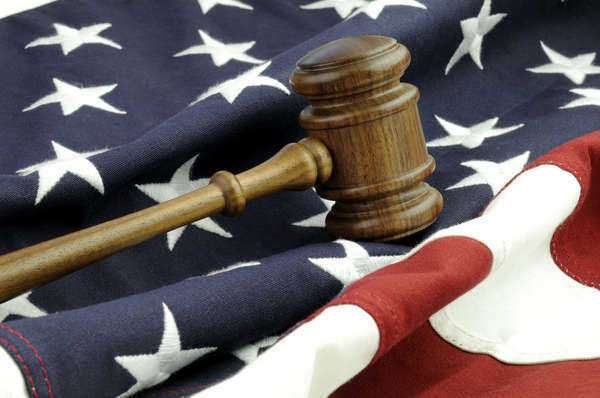Major Cases- US vs. Nixon
US v. Nixon is without a doubt one of the most significant Supreme Court cases in American history. The case arose during the Watergate scandal of the early 1970s, which involved President Richard Nixon's administration's attempt to cover up its involvement in illegal surveillance and break-ins targeting the Democratic Party's headquarters at the Watergate complex.
As part of the investigation, special prosecutor Archibald Cox issued a subpoena demanding that President Nixon turn over audio tapes of conversations recorded in the Oval Office. Nixon initially refused to comply and argued that his executive privilege protected him from having to give up the tapes.
The case eventually made its way to the Supreme Court, which was tasked with deciding whether or not the president's executive privilege was absolute or limited and whether the tapes were crucial evidence in a criminal case.

In the landmark decision of US v. Nixon, the Supreme Court found that no one, not even the president, is above the law. In an 8-0 decision (with Justice Rehnquist recusing himself), the Court ruled that the president's executive privilege was not absolute and that the tapes were essential to the ongoing investigation of the Watergate scandal.
The decision was a landmark moment in American constitutional history that reaffirmed the principle of the rule of law and the separation of powers. The Supreme Court specifically rejected the argument that the president was a monarch or sovereign ruler with complete and unfettered power.
The ruling in US v. Nixon was a major blow to President Nixon, who was ultimately forced to turn over the tapes and resign from office in the aftermath of the Watergate scandal.
More than four decades later, the legacy of US v. Nixon continues to be felt throughout American politics and law. The case stands as a reminder of the importance of the judiciary as an independent branch of government, free from political interference or executive pressure. It also serves as an example of the power of the Constitution to protect American democratic institutions and promote accountability and transparency in government.
Following the unrest created by the Pentagon Papers and New York Times. United States trial, it was clear that there was much civil unrest regarding the situation of the United States’ involvement in the Vietnam War.
Further occurrences would prove to be fuel to the fire, such as the Kent State University shootings and President Nixon's approval to attack Cambodia. However, all of the turmoil would finally be capped off by what became known as the Watergate Scandal. The Watergate Scandal would essentially place President Nixon in the middle of illegal activity, such as breaking and entering, burglary, and other such crimes.
Eventually, the senate would begin an investigation that would uncover the makings of a cover-up at the behest of the Nixon administration involving Watergate. Eventually, it would be discovered that Nixon had installed some form of taping a system that recorded conversations with members of his administration as well as his advisors. Nixon would refuse to release the tapes as demanded by the Supreme Court, claiming that this property was protected under executive privilege. Nixon would eventually comply, but the tapes would be partially erased.
The United States Supreme Court had several issues to tend to regard the Watergate Scandal and the involvement of President Nixon. However, the Watergate case had implications on the Constitutional level that had to be addressed. Firstly, the Constitution would have to be examined to evaluate whether the President had absolute power to withhold important information from the other branches of power and if the executive privilege clause could be claimed in such a circumstance.
Furthermore, the Court also had to address how such a dispute is to be settled to be concurrent with the separation of powers, regarding whether the Judicial or Executive Branch would have jurisdiction in resolving the matter. It was also considered whether or not if the claiming of executive privilege violated provisions of the Fifth and Fourteenth Amendments regarding Due Process.
The Chief Justice presiding over U.S. v. Nixon was Warren E. Burger and would provide for a unanimous Supreme Court decision in favor of the United States, demanding that the Nixon administration surrender the recordings. Burger noted that the question of executive privilege and its the application would prove to be determined by the courts and the Judicial Branch, particularly in this case where criminal activity was involved. Furthermore, Burger would also conclude that executive privilege, in this case, would prove to violate the Constitutional rights of citizens of the United States (See Also: The Constitution-Bill of Rights).
Concurrently, Burger also stated that the withholding of the tapes would prove to be violations of the Fifth Amendment as well as the Sixth Amendment. Because the Fifth Amendment provides for Due Process, it was necessary that the President comply with the orders of the Court so as to not impede the criminal proceedings. The Sixth Amendment provides that a defendant in a trial can be confronted by witnesses against the accused, thus extending the tapes as evidence necessary to continue the trial.
In general, the Supreme Court would provide a limitation to the Executive Branch by restricting the powers and liberties that the President can employ. His/her position as the President of the United States does not render him/her above Constitutional law. History proves that Nixon would resign his office as President in light of the incriminating evidence that was brought upon him through the impeachment trials. Nixon would be the first President of the United States to resign the position.